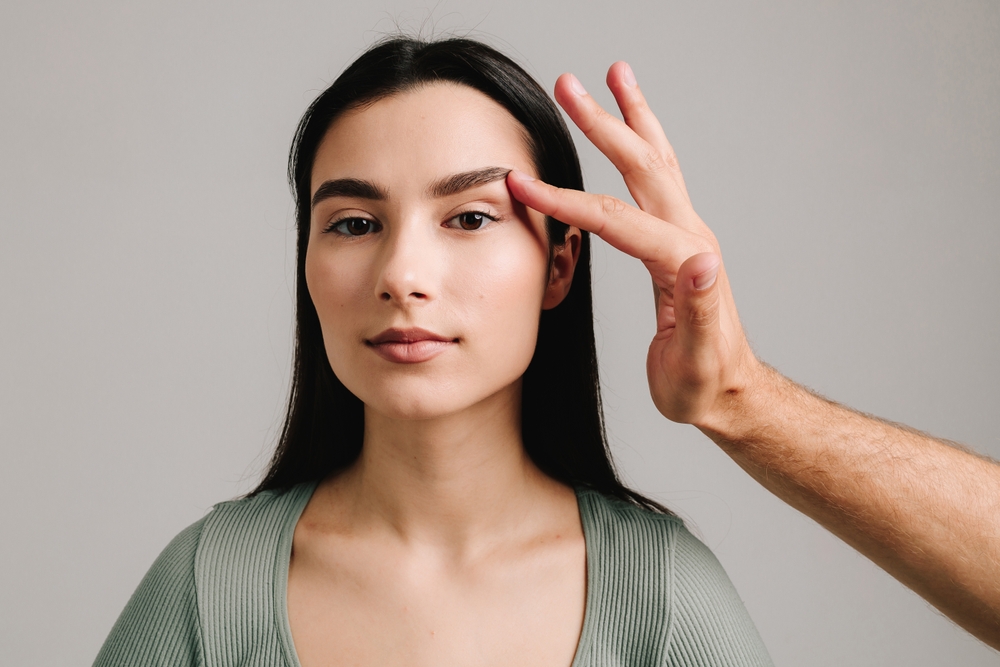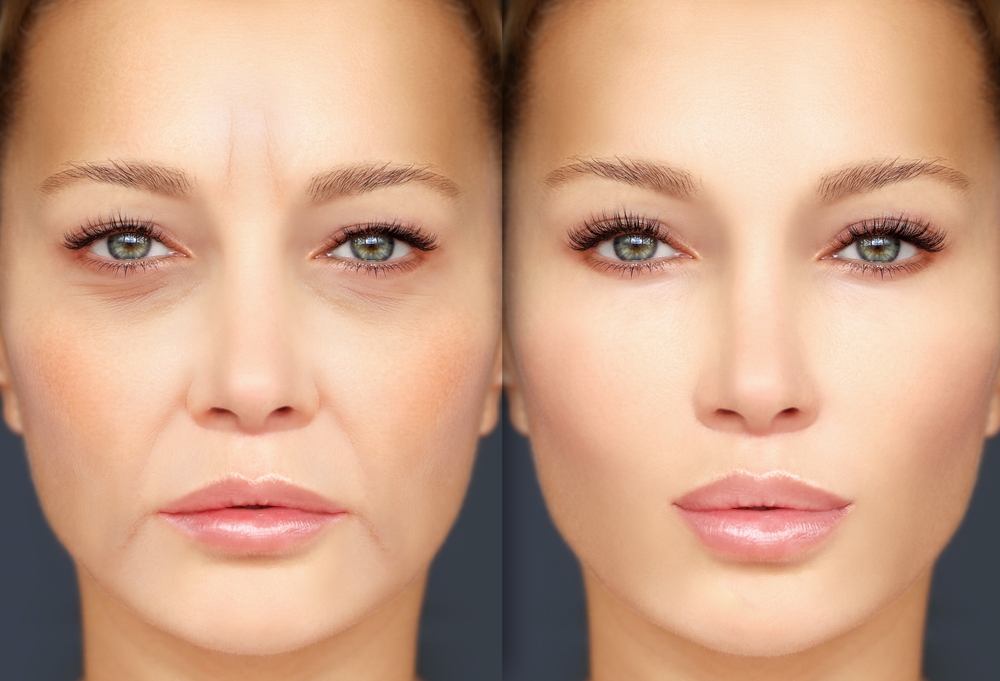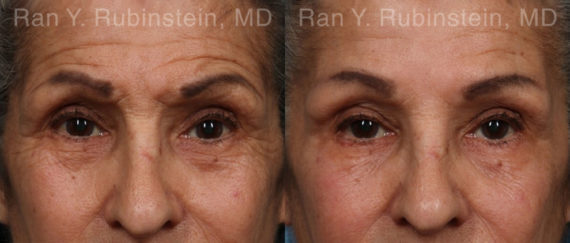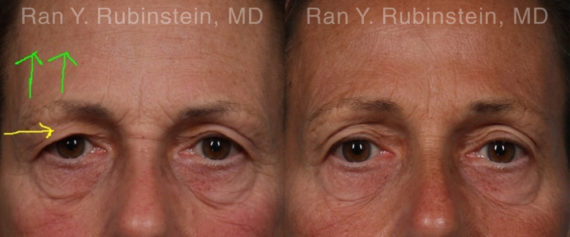How Long Does Botox Take to Work?
Posted by Rubistein Plastic Surgery Center

Botox usually takes 3–8 days to start working, and full results appear in 7–14 days. However, the time it takes for Botox to work depends on several factors, including the area treated, the dosage, and your metabolism.
Botox is one of the most popular non-surgical treatments available today, whether you’re looking to smooth fine lines, ease migraines, or even reduce excessive sweating. Understanding how Botox works and what influences its activation time can help you set realistic expectations. Let’s break down the typical timeline and what you can do to optimize your results.
When Does Botox Fully Kick In?
Botox results don’t appear instantly, but they do show up within a predictable time frame, depending on the treatment area. Here’s a simple breakdown of when you can expect to see improvements:
| Botox Treatment Area | When Results Start | When Full Results Appear |
|---|---|---|
| Facial areas (general) | 3–8 days | Up to 2 weeks |
| Jaw slimming (masseter) | 1–2 weeks | Up to 6 weeks |
| Migraine relief | 1–2 weeks | Up to 6 weeks |
| Hyperhidrosis (sweating) | 3–4 days | Varies (often sooner than others) |
General Botox Timeline
For most facial applications of Botox, the timeline remains fairly consistent. Whether you’re treating the forehead, frown lines (glabellar lines), crow’s feet, bunny lines on the nose, chin dimples, or undergoing a lip flip, you can expect a similar progression of results. Below is a general breakdown of what to anticipate.

Patients typically start noticing subtle changes within the first few days after their Botox treatment. The muscles begin to relax, and fine lines or wrinkles may appear softer. However, results are not fully developed at this stage, and movement may still be visible in the treated areas. Patience is key as the effects gradually take hold.
3–8 Days: Initial Results

By the second week, Botox has fully settled into the muscles, achieving its peak effectiveness. Wrinkles and fine lines should be significantly reduced, and the treated areas will appear smoother. Any minor asymmetry may adjust during this period, and patients can assess their final results.
10–14 Days: Full Effect

As Botox gradually metabolizes, patients may begin to notice a return of slight muscle movement in treated areas. While the overall effect remains, some fine lines may start reappearing. Regular maintenance treatments can help sustain a youthful appearance and prevent deep wrinkles from becoming prominent again.
8–12 Weeks (2–3 Months): Start to Fade

By the three to six-month mark, Botox effects have typically worn off completely. Muscle activity returns to its natural state, and wrinkles or lines may gradually reappear. At this stage, many patients opt for a follow-up treatment to maintain their desired results and prevent wrinkles from deepening over time.
3–6 Months: Fully Worn Off
Keep looking your best with our expert advice!
Book your appointment with New Jersey’s top Botox provider!
Factors That Affect Botox Longevity
While Botox results follow a general timeline, individual experiences can vary due to several factors. Some patients may notice longer-lasting effects, while others might metabolize the product more quickly. Optimize your Botox treatments and ensure the best possible results. These are the most relevant factors that affect the longevity of Botox:
- Age: Younger patients with better skin elasticity may see Botox last longer, while older individuals with deeper lines may metabolize it more quickly.
- Metabolism: Those with a faster metabolism tend to break down Botox more quickly, reducing its longevity.
- Muscle Activity: Individuals with stronger facial muscles or frequent facial expressions may experience a shorter duration of results as the muscles regain movement faster.
- Lifestyle: Factors such as smoking, sun exposure, and intense physical activity can contribute to Botox wearing off sooner than expected.
- Injection Techniques: The skill and technique of the injector play a crucial role in Botox longevity. Precise placement and the right dosage can significantly impact how long the results last.
How to Make Botox Last Longer
While Botox is not permanent, there are ways to extend its effects and maintain a youthful appearance for longer. Taking care of your skin, making healthy lifestyle choices, and following expert recommendations can help you maximize your Botox results.
- Avoid rubbing or massaging the treated area for at least 24 hours to prevent spreading the toxin to unintended muscles.
- Stay Hydrated and Maintain a Healthy Diet: Proper hydration and a nutrient-rich diet help keep your skin healthy and enhance the longevity of Botox.
- Limit Sun Exposure: UV rays can break down Botox faster, so wearing sunscreen and avoiding excessive sun exposure can help prolong results.
- Reduce Stress Levels: High stress can increase muscle tension and metabolism, causing Botox to wear off more quickly. Relaxation techniques may help maintain results.
- Schedule Regular Maintenance Treatments: Consistent touch-ups before Botox fully wears off can help train muscles to stay relaxed longer, extending the effects over time.
Can Anyone Inject Botox?
Technically, Botox can be injected by licensed medical professionals—but that doesn’t mean everyone is equally qualified. For the best (and safest) results, it’s important to choose a specialist with experience in facial anatomy and advanced injection techniques.
When Botox is injected by someone without proper training, the risks go up. You could end up with uneven results, drooping eyelids or brows, or a “frozen” look that doesn’t feel natural. In rare cases, poor technique can even affect nearby muscles or cause unwanted side effects.
An experienced injector knows how to customize your treatment based on your unique facial structure, expressions, and goals. They’ll also know how to avoid complications and give you results that look smooth, balanced, and natural.
So while many providers can legally offer Botox, trusting your face to a skilled specialist makes a big difference in both safety and satisfaction.
Schedule an Appointment in Montvale, NJ, and Get the Best Botox Results
Dr. Ran Y. Rubinstein is a double-board-certified plastic surgeon who has specialized in facial procedures for over two decades. His expertise in injectables, including Botox, has made him a national leader in the field. In addition to performing these treatments, he also trains other physicians on advanced Botox techniques. If you’re considering Botox, trust a true expert. Call us at (201) 391-1135 to schedule your consultation today!
Questions About Botox Duration
Why Does Botox Take Time to Work?
Botox doesn’t produce immediate results because it takes time for the neurotoxin to block the nerve signals that cause muscle contractions. After injection, Botox gradually binds to the nerve endings, preventing them from releasing acetylcholine, the chemical responsible for muscle movement. This process can take several days, which is why results appear gradually over the course of a week or two.
Does Botox Take Longer to Work the First Time?
A common misconception is that Botox takes longer to work for first-time users. However, how long it takes for Botox to kick in depends on individual factors such as age, genetics, metabolism, and muscle activity rather than whether it is the patient’s first treatment. Some may notice quicker results, while others experience a slightly longer onset due to their body’s unique response.
Does Botox Last Longer Over Time?
With repeated Botox treatments, some patients may find that their results last longer. This happens because the treated muscles may weaken over time due to reduced movement, causing the effects to be more prolonged. However, this may not always be desirable, as overly weakened muscles can lead to an unnatural appearance. Regular assessments with an experienced injector ensure that Botox is applied in a way that maintains natural facial expressions while achieving optimal longevity.
Can Taking Zinc Supplements Help Botox Last Longer?
Zinc supplements may help Botox last longer, according to studies published in the Journal of Drugs in Dermatology. This may be because zinc supports collagen production, which helps keep the skin firm and could potentially enhance the effects of Botox.
The bottom line is that having healthy zinc levels might support how Botox works in your muscles. As always, it’s best to talk to your doctor before starting any new supplements—especially if you’re undergoing cosmetic treatments.
Why Did My Botox Wear Off Faster Than Expected?
Botox can wear off faster than expected if your body breaks it down more quickly than average. This can happen due to things like a fast metabolism, frequent workouts, high activity levels, or even stress.
Everyone’s body reacts a little differently to Botox. If you’re very active, your body may process the treatment faster. Other factors like smoking, certain medications, or even the dose and placement of the Botox can also affect how long it lasts.
If your results faded sooner than you thought they would, you’re not alone—and it’s worth mentioning at your next appointment.

